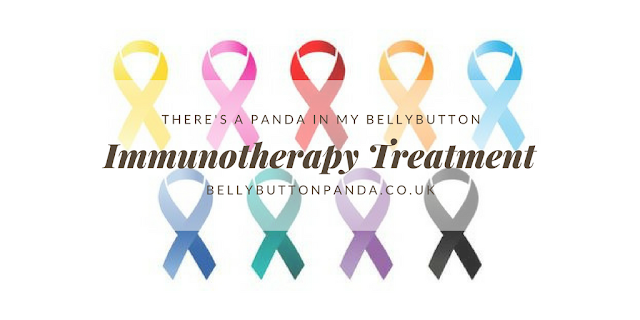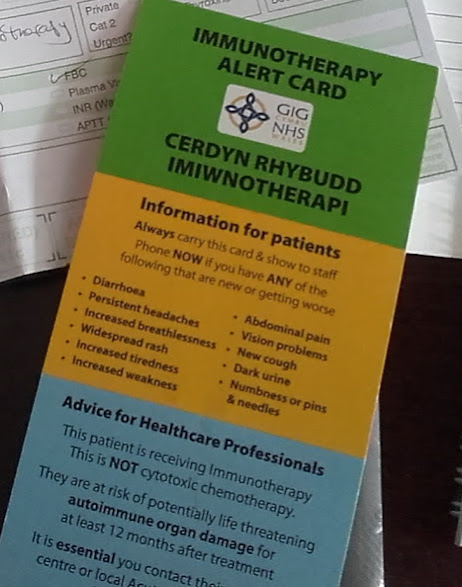Experimental Treatment
Pembrolizumab is one of a number of immunotherapy treatments that are revolutionising the fight against cancer around the world. The future of medicine may eventually see these treatments used as the first line of defence against Cancer, which does not affect neutrophil counts or cause hair loss which are two of the biggest disadvantages of chemotherapy treatment.
Immunotherapy targets only certain cells, meaning you don’t kill all the good cells off as happens with chemotherapy, making it more tolerable. It has been found to be effective in treating some types of cancer where other treatments have failed to work.
Immune System
Your immune system is how your body protects itself against infections and diseases. It recognises if you pick up a virus or bacteria germs that shouldn't be there. Your immune system also helps to destroy any old cells or damaged or broken cells, cancer is clever and it can trick your immune system into thinking that the cell is ok when in fact it isn't.
This is why your immune system sometimes doesn't work as it should and kill cancerous cells allowing them to grow. Immunotherapy treatments work by targeting the proteins that cancer produces.
The treatment sends signals to your immune system that the cell is bad and your immune system can then kill that cell off. Chemotherapy is a toxic chemical that kills any bads cells but also kills good cells which cause immune problems in patients, with immunotherapy you don't get this death of good cells meaning immunotherapy therapy treatment is generally tolerated better than Chemotherapy.
Checkpoint Inhibitor
Many cancers make a protein that attaches itself to the bodies cells. This protein blocks the immune system from seeing the cancerous cell and so the cancer is able to spread to more cells.
Pembrolizumab is an artificially made antibody, known as a checkpoint inhibitor that finds cancer made proteins and alerts the immune system to target and destroy the cancer cells.
In some instances, this same mechanism has meant that the immune system also starts to attack the body itself, and checkpoint inhibitors like pembrolizumab have immune-dysfunction side effects as a result.
Pembrolizumab Treatment
Pembrolizumab is given by specialist oncology teams in hospital, usually as a day patient, once every three weeks, through an IV drip. It can be given for as long as your medical team feel you are benefiting from the treatment, this is usually up to 2 years.
You will need regular blood tests to make sure your body is tolerating the treatment and will have a PET scan to check if the cancer is in remission.
Side Effects
There are possible side effects and you will be given a list of what to look out for whilst at home between treatments and the Doctors will give you a thorough examination at least once every three weeks, or even weekly between treatments.
Lymphoma Association
The way I have explained immunotherapy treatment and Pembrolizumab is a simplified version for ease of understanding. You can read more about the immune system, how it works and how it sometimes goes wrong on the Lymphoma Association website.


hey ,how is ryan ?
ReplyDeleteI am sorry, I didn't get an alert for this comment. Ryan is continuing to make progress and defy the doctors. He is not experiencing any of the expected side effects from the immunotherapy, but there are still areas for concern on his latest PET scan. He is fighting hard.
Delete